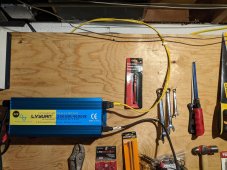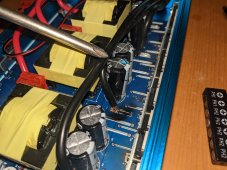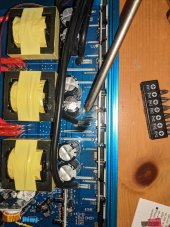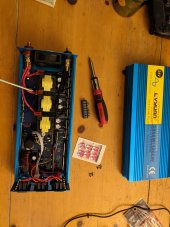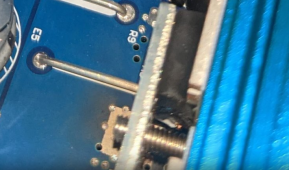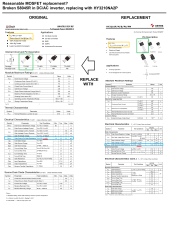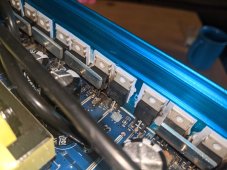gloves12
New Member
- Joined
- Mar 2, 2022
- Messages
- 15
RIP my first inverter, sorry buddy!
My fault, ran a 900w microwave and a 1200w induction cooker at the same time; I was assuming the inverter's overcurrent protect would trip, but I burned it out bummer! The 24v inverter was behind a 150A fuse which wouldn't blow until 3600 watts, so next time I think I'll use a smaller fuse, too.
bummer! The 24v inverter was behind a 150A fuse which wouldn't blow until 3600 watts, so next time I think I'll use a smaller fuse, too.
Looking at a Giandel 24v 3000W perhaps as a higher quality replacement.
My fault, ran a 900w microwave and a 1200w induction cooker at the same time; I was assuming the inverter's overcurrent protect would trip, but I burned it out
Looking at a Giandel 24v 3000W perhaps as a higher quality replacement.



